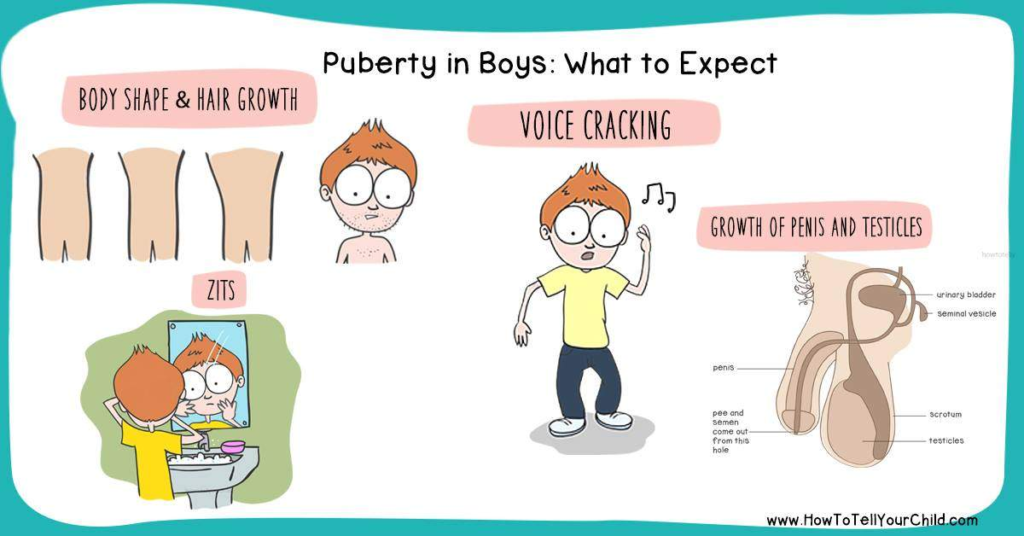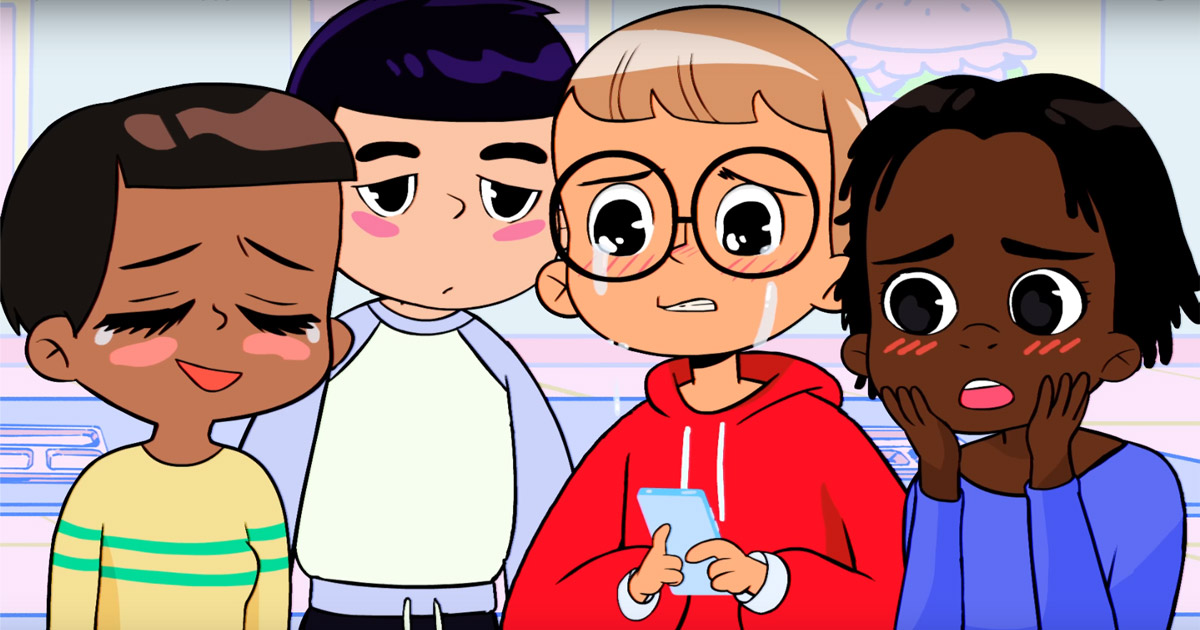Puberty In Boys: How Should You Deal With The Changes?
Lately, a lot of post-puberty “glow-up” posts have been doing rounds on social media. But we often overlook what goes on behind the scenes of these glow-ups – the sudden physical, emotional and behavioral changes. The process of puberty, or the changes that happen as a child’s body matures into an adult’s body, is often very confusing for the ones going through it and their parents. Everyone experiences puberty differently. While it is usual for girls to hit puberty before boys do, there might be differences in the timings even within the same sexes. Even though everyone goes through this, there exists a lack of conversation around it, especially for boys. This leaves a lot of scope for discomfiture and distress. In this article, we will, therefore, try to break down the process of puberty in boys.

Stages Of Puberty In Boys
Stage I. While the average age for a boy to reach puberty is 11, some might experience early or delayed puberty. Irrespective of that, most boys will go through five stages of puberty, starting from the pre-puberty stage (below 10 years of age). Known as the Tanner Stages of Sexual Development, it breaks down puberty based on changes in the male genitalia.
Stage II. Around the age of 10-15, their testicles will grow in size, the scrotum will become redder, and pubic hair will become visible.
Stage III. The penis will start becoming longer in the next stage, and the testes and the scrotum will keep growing. More pubic hair will also start appearing.
Stage IV. The fourth stage is experienced between the ages of 12 and 17 years of age. During this stage, testicles continue to grow. The penis continues to grow in length and now becomes thicker. The scrotum grows larger and also darkens. The pubic hair becomes coarser.
Stage V. The fifth and final stage is when the penis, testes, and scrotum reach the normal adult size. The pubic hair is also of normal adult distribution and volume.

What Else Will Change?
In short, everything. Within a few years, the young boy will grow up into a man. Most of the bodily changes will take place as a result of a hormone called testosterone. Some of the changes that will gradually occur will look like this:
- Their body shape may start to change as more muscle tissue forms. They will become taller, develop more muscles, and their shoulders will get broader.
- Your testicles will start forming sperms. They will start getting erections and will ejaculate. The first few times this happens, it might be a result of “wet dreams.”
- Their voices will change as their larynx keeps growing.
- They will experience more sweating, body odor, and some will even develop acne.
Besides physical changes, most teens will also experience mood changes as they try to cope with themselves. This emotional roller coaster can have various psychological and emotional effects.
- Unexplained mood swings
- Low self-esteem
- Aggression
- Depression

How to Deal with “Feeling Different”?
During early adolescence, all teenagers will experience drastic mood swings – from euphoric to angry and upset in minutes. This is also the stage when teens are intensely preoccupied with “being normal” and with privacy. Young teens will spend hours in front of mirrors scrutinizing their appearance and grooming. The changes of puberty cause them to become extremely body-conscious, creating worries about acne, menstruation, nocturnal emissions, and body size. They become hypercritical of themselves as they compare themselves to friends and the unrealistic images portrayed in the media. Emotional reactions may overwhelm their ability to understand and cope. It is also normal for them to become confused and frightened by the changes they are experiencing.
With increased levels of testosterone, teenage boys will also experience increased sex drive or libido. As sexual feelings develop, it will create desires to watch sexually explicit movies or television shows, read sexually explicit magazines, tell sex-related jokes, and use foul language. As they continue to age, they might even indulge in sexual experimentation. There is a greater societal pressure for men to be more sexually active. Unmonitored and unaware, these young boys might indulge in sexual practices and experimentations they will later regret.
What Can Parents Do?
As these young boys have to go through these alien experiences, they might feel awkward and confused, angry, afraid, and excited about the changes at the same time. They might feel like a grown-up one day and like a child on other days. At this stage, they must be reassured that whatever they are going through is normal. Parents/guardians should also offer reassurance that children of the same age mature at different rates. Other than reassurance, these young boys must get facts about their physical changes. This will also help in doing away with stigmas and taboos.
Unlike young children, teenagers will have more specific questions about sexuality and sex. It is important not to avoid such conversations. Along with this, the changes that girls go through should also be demystified for the young boys. In the absence of proper answers, teenagers might turn to their friends, the internet, or other sources for information. Parents should consider who’s best to educate your child — them or the TV, the internet, or their child’s friends? Discussing issues such as arousal, pregnancy, STDs now can help the child avoid feeling pressured to become sexually active before he/she/they are ready. Gender-diverse children might need extra support during puberty.

Conclusion
A lot of men grow up still feeling embarrassed about that one wet dream, that shameful sexual attraction, that uncalled for sexual arousal, or that desperate act of sexual experimentation. In the absence of proper sex education and adult guidance, these young teenagers are left grappling with answers in the dark. Often, parents find themselves in uncomfortable positions as they try to answer the complex and oddly specific sexual questions of their children. This should once again serve as a reminder that sex education is vital in schools. Children should be made aware of the changes they will go through well before puberty sets in. It not only saves them from chancing upon sexual blunders but also prevents mental illnesses.
Graphic design by: Anshika Maria Sunny
Author

